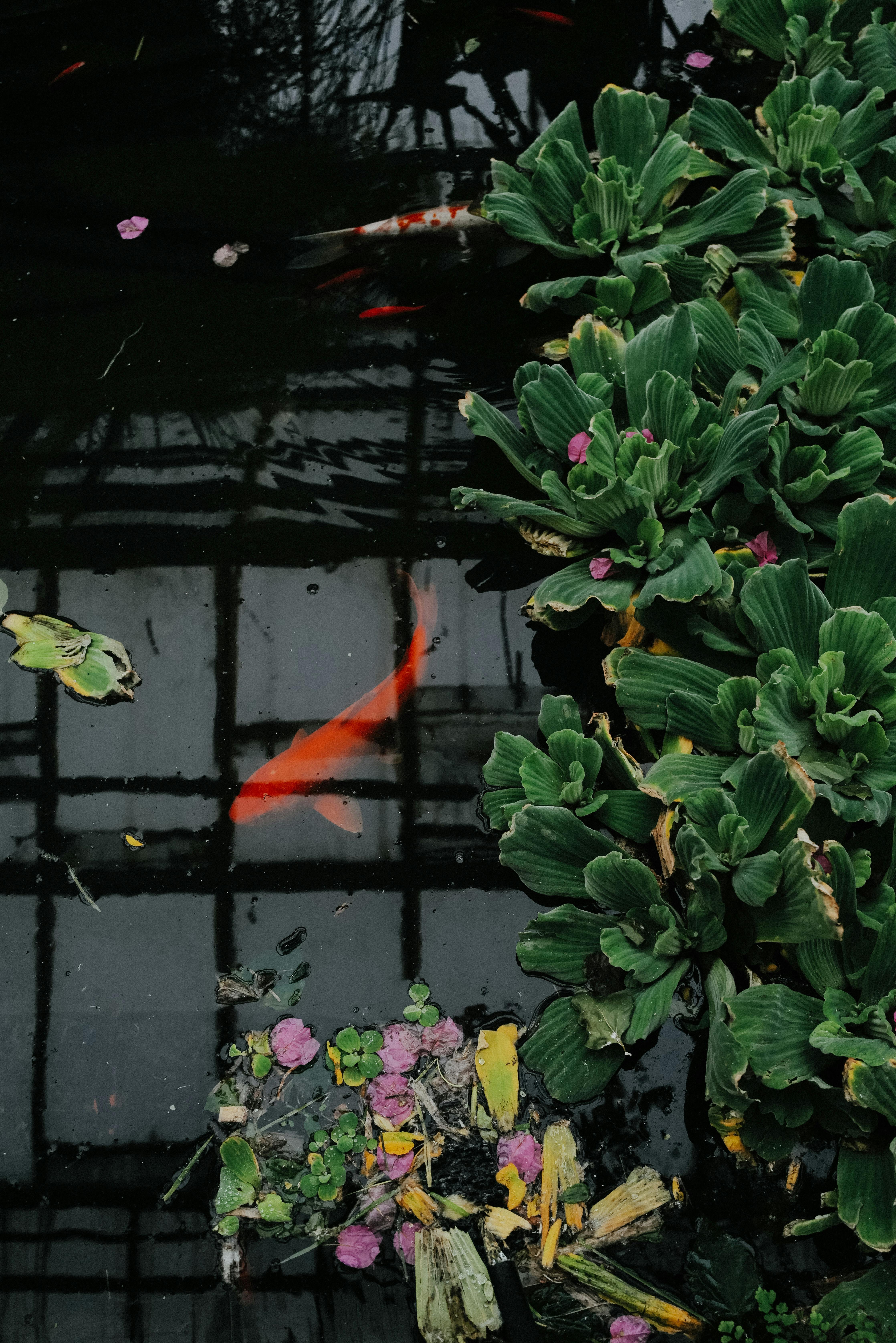Essential Guide to Buying an Octopus for Sale as a Pet in 2025
As pets continue to diversify, the intriguing and intelligent octopus is emerging as a favored choice among exotic pet enthusiasts in 2025. While they are often associated with mysteries of the deep sea, pet octopuses offer unique challenges and delights for their owners. This article serves as a comprehensive guide for those considering introducing an octopus into their homes. From understanding octopus species suitable for pets to the ideal aquarium setup and care requirements, we will explore everything you need to know about these magnificent cephalopods.
Not only are octopuses known for their remarkable intelligence and personality, but they are also extraordinarily beautiful creatures that can be a lively addition to any aquarium. They thrive in environments that mimic their natural habitats, and with the right knowledge, prospective owners can create a loving and healthy setting for their octopus companions.
This article will cover vital topics, including species selection, tank setup, feeding, and care tips. You’ll also learn about responsible ownership practices to ensure a fulfilling relationship with your aquatic pet. At the end, we include answers to common questions about keeping octopuses as pets. So let’s dive into the world of these extraordinary animals!
Choosing the Best Pet Octopus Species
When contemplating the addition of an octopus to your home aquarium, selecting the right species is paramount. Numerous octopus species exist, each with unique characteristics and requirements. The best pet octopus for you will depend on your level of experience and the size of your aquarium.
Many beginners may opt for smaller species, such as the Common Octopus or the Blue-ringed Octopus, known for their striking colors and captivating behaviors. These species are manageable in smaller tanks and can thrive with proper care. On the other hand, more seasoned aquarists may lean towards species like the Giant Pacific Octopus, which, while stunning, requires a more extensive setup due to their size and environmental needs.
Keep in mind, many species of octopus require specific tank conditions, such as water temperature, salinity, and pH levels. Conducting thorough research on the specific care requirements for the octopus species you intend to buy is essential for successful ownership.
The interactivity and social needs of octopuses vary significantly among species. For instance, while some may be solitary, others appreciate the presence of tank mates that are compatible with octopus behavior. Thus, consider not only the individual species’ requirements but also how they will fit into your overall aquarium ecosystem.
Choosing the right octopus species is the first step in ensuring a smooth and enjoyable pet ownership experience, paving the way for a fascinating journey into octopus care.
Exploring Popular Octopus Species for Pets
Several octopus species are particularly well-suited for life as pets. Here are a few of the most popular options:
- Common Octopus: Widely available and adaptable, making them a great choice for beginners.
- Blue-ringed Octopus: Known for their vibrant colors, they have a unique personality but require careful handling due to their venomous nature.
- Caribbean Reef Octopus: Small and colorful, they are social and thrive in community tanks.
- Giant Pacific Octopus: A magnificent creature that attracts experienced aquarists due to its size and elaborate care needs.
Identifying the characteristics of these species—and understanding their care requirements—will help you make the best decision according to your preferences and skill level.
Caring for Your Pet Octopus
Caring for a pet octopus involves understanding their unique biology and behavior. Octopuses are typically solitary creatures, often spending time hidden in their dens. Creating an environment that mimics their natural habitat will promote comfort and happiness in your octopus.
The physical space, or octopus tank setup, is crucial. Aim for a well-filtered and spacious aquarium with hiding spots, plenty of enrichment toys, and decor that allows your octopus to explore. Clean and maintain the aquarium regularly to ensure water quality suitable for your pet's health.
Feeding is another critical aspect. Octopuses have specific dietary needs and primarily eat live foods such as crabs, shrimp, and fish. Sometimes frozen options are available, but live feeding helps to stimulate their natural hunting instincts. Understanding how to provide a well-rounded diet is key to keeping your pet healthy and happy.
In addition to physical needs, mental enrichment is important. Engaging with your octopus can help foster a bond and prevent boredom. Various toys designed for octopuses can enhance their environment and offer creative stimulation. Nonetheless, recognizing signs of stress or discomfort is essential, as these intelligent creatures require a nuanced understanding from their owners.
Creating Ideal Habitats for Your Octopus
Establishing an optimal habitat for your octopus is a foundational aspect of pet ownership. Octopuses are sensitive to water conditions, and thus thorough research and preparation of the aquarium environment are paramount.
The size of the octopus enclosure should preferably range from at least 50 gallons for smaller species to around 200 gallons for larger species. Ensure it's equipped with a quality filtration system and frequent water changes. Maintaining the right temperature sensitivity for different octopus species—typically between 76°F and 82°F for tropical varieties—is critical.
Incorporate natural elements like rocks, coral, and plants that replicate natural habitats. Use soft decorations to prevent your pet from injuring themselves while exploring. Providing numerous hiding spaces will not only reduce octopus stress but also mimic their natural instinct to find refuge from danger.
Monitoring the environmental factors, like salinity levels and pH, ensures that your octopus has a healthy living space. Engaging with seasoned octopus owners can be tremendously beneficial during this setup phase. There are plenty of online communities dedicated to sharing insights and experiences about octopus habitats.
Octopus Feeding Guidelines
Feeding an octopus can be both rewarding and daunting due to their specific protein-based dietary requirements. As opportunistic carnivores, octopuses thrive on a diet that includes shrimp, crabs, and various fish. Most importantly, ensuring the food is fresh will contribute to their overall health.
Implementing a feeding schedule is crucial; a common recommendation is 2-3 small feedings per week. The size of the prey should match the size of your octopus to prevent choking or digestive issues. Some owners prefer live feedings to stimulate the octopus’s hunting instincts, which also serves as a form of enrichment.
Furthermore, it’s vital to monitor your pet’s eating habits. Changes in appetite can indicate health issues or stress, prompting a need for immediate intervention, such as a veterinary consultation. Therefore, being observant of octopus behavior coupled with understanding dietary guidelines ensures a fulfilling and healthy existence.
Feeding accurately enhances the likelihood of a long and vibrant life for your octopus. Building feeding routines into your overall care strategy can significantly contribute to their well-being.
Meeting the Needs of Your Octopus: Health and Care Tips
Understanding octopus health care holds the key to ensuring your pet thrives. Like any other pet, recognizing signs of stress or illness is essential for timely care. Common indicators of distress include changes in color, extended hiding, lack of appetite, or unusual behaviors. These behaviors can signal the need for changes in the environment or diet.
Octopuses require clean living spaces, so regular cleaning of the aquarium and monitoring of water parameters will help prevent disease. Routine veterinary check-ups alongside assessments can catch potential health issues before they escalate. Incorporating species-appropriate care tips, and understanding their unique needs, directly aligns with ensuring optimal health.
Further, educating yourself on octopus social needs can markedly improve your pet’s quality of life. Octopuses exhibit complex behaviors and display significant intelligence, so dedicating time to engage in activities fosters meaningful companionship.
Other routine care essentials include providing necessary enrichment and setting up optimal habitats tailored to your specific species of octopus. This aids in fulfilling their instinctual behaviors, thus reducing stress levels.
FAQs: Common Questions About Pet Octopuses
As interest in keeping octopuses as pets grows, so do the questions about their care and maintenance. Let’s address a few common inquiries from prospective octopus owners.
What’s the Average Lifespan of an Octopus as a Pet?
The lifespan of a pet octopus varies widely depending on the species, ranging from about 1 to 5 years on average. Some species, such as the Giant Pacific Octopus, may live longer, so it is crucial to research the specific species you are considering to understand its expected lifespan.
Are Octopuses Social Animals?
Octopuses are generally solitary creatures. They do not require companionship and can often display territorial behaviors—even among their kind. If you do decide to house multiple octopuses, understanding their specific behavior and needs is essential to prevent conflict.
How Difficult Is It to Care for an Octopus?
Caring for an octopus can be quite complex due to their specific habitat and dietary requirements. New owners should educate themselves thoroughly to ensure they can meet the biological and environmental needs of their pets. The investment in time, research, and equipment is necessary for fulfilling octopus care.
Conclusion: Embracing the Experience of Octopus Ownership
Owning a pet octopus can be a truly rewarding experience for enthusiasts willing to commit to their unique care requirements. From choosing the right species to ensuring a healthy environment and diet, each aspect contributes to the well-being of your aquatic companion. Understanding their behaviors, personalities, and needs helps foster a harmonious relationship.
As you embark on this journey of caring for an octopus, remember to utilize available resources, communities, and experts to enhance your experience. Whether you are drawn to their captivating intelligence or simply love their extraordinary appearance, enriching the life of an octopus can be incredibly fulfilling. Embrace this challenge, and you will discover the rewarding joys of being an octopus owner.


